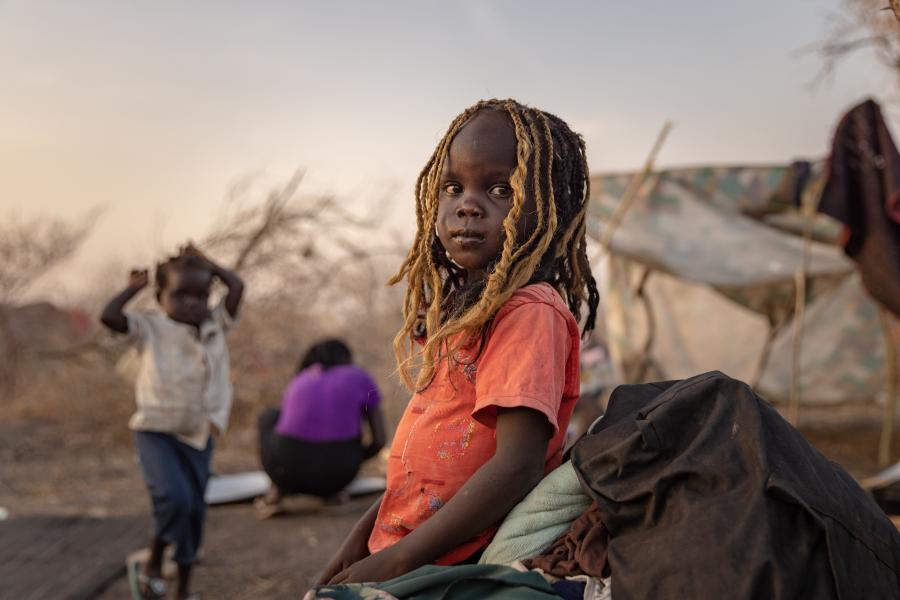2024 population planning figures
23.6 million forcibly displaced and stateless people¹ | 18% of global total

Regional overview
The East and Horn of Africa and the Great Lakes region is expected to host 23.6 million forcibly displaced and stateless people by the end of 2024.
Millions have fled conflicts in Sudan, Ethiopia, Somalia and the Democratic Republic of the Congo (DRC), and floods and droughts stoked by climate change. Their difficulties have been exacerbated by the global economic downturn and repercussions from the war in Ukraine.
In 2024, UNHCR will prioritize emergency response, protection and basic services to stabilize populations and ensure their dignity, while pursuing opportunities for inclusion and solutions. It will support returnees in Burundi, Somalia and South Sudan, and support governments of the region to bring their Global Refugee Forum pledges to fruition.
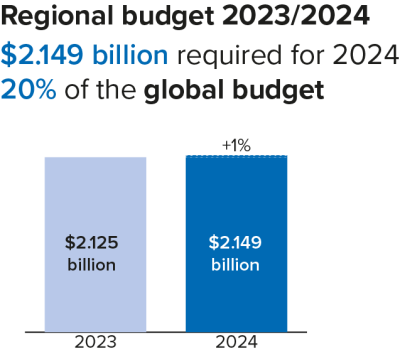

In Sudan, the conflict following the collapse of the fragile peace process in 2023 forced many thousands to flee and drove more than 1 million into neighbouring countries. Many fled to South Sudan, which also saw flare-ups of violence that caused internal and external displacement. Both countries are expected to remain fragile throughout 2024.
In northern Ethiopia, the security and operating environment has gradually stabilized since a peace agreement for the Tigray region, but the Amhara, Benishangul, Gambella regions and Western Tigray remain of concern. In Somalia, the political and security environment and the ongoing impacts of a historic drought are expected to cause further displacement.
Elections scheduled between 2023 and 2025 in the DRC, Rwanda, South Sudan and the United Republic of Tanzania may affect access to territory and asylum and opportunities for solutions, particularly where State actors instrumentalize displaced populations to achieve political ends. Election-related violence and instability may also cause new or secondary displacement, and onward movements within the region.
UNHCR will support efforts to keep asylum access open and will press the international community to take a greater share of responsibility for protecting and assisting displaced people, as well as helping them to return safely, resettle elsewhere or integrate locally. While some countries exhibit great generosity, the region may witness a progressive tightening of asylum regimes in the face of protracted situations. UNHCR will support interventions that safeguard access to asylum procedures and protection, contribute to the reform of legal and policy frameworks that address statelessness and the risk of statelessness, and expand refugee inclusion in national systems.
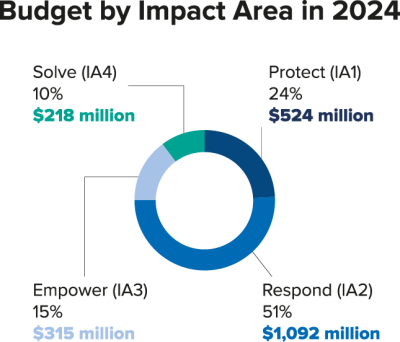
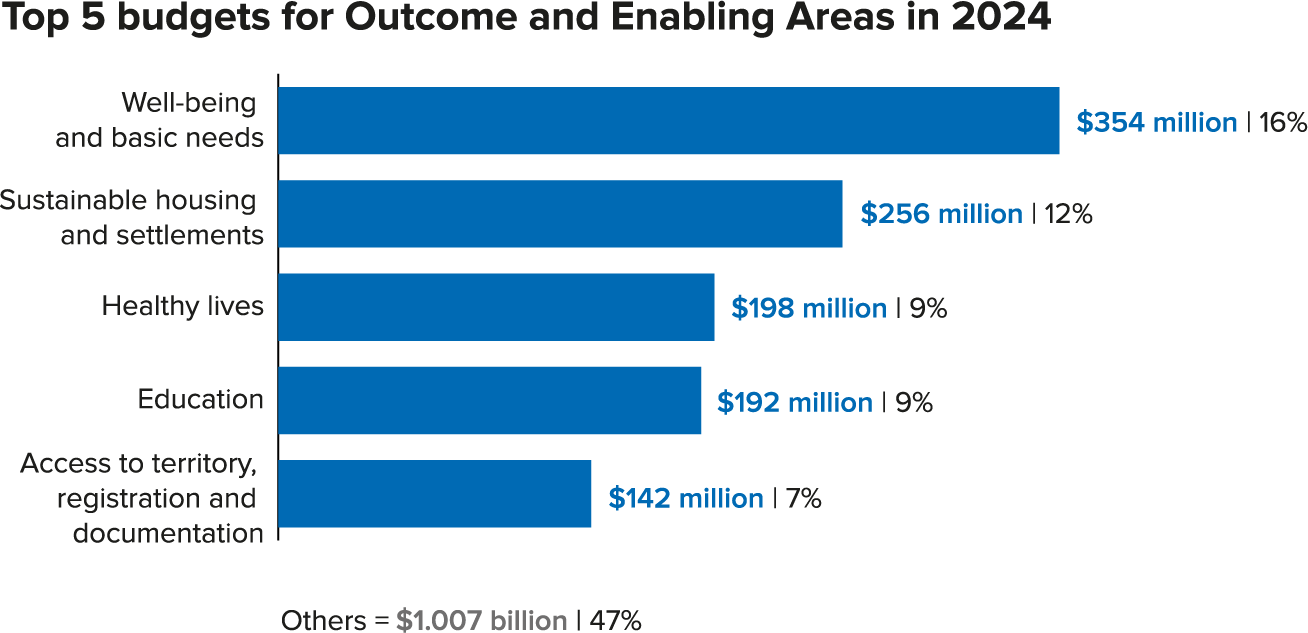
UNHCR’s regional budget of $2.149 billion is 1% higher than the current 2023 budget. Low funding would preclude all but the most vital life-saving support, while full funding would give people who have been forced to flee a chance to return to full and productive lives.
UNHCR's plans include aiming for 99% of births to be attended by skilled medical personnel in Ethiopia and ensuring at least 85% of refugees in Somalia know where to access gender-based violence services. In Uganda, UNHCR will aim for at least 55% of refugee and asylum-seeking children to be enrolled in the national education school system. In Kenya, UNHCR will seek solutions via complementary pathways for 150 refugees in 2024. An estimated 500,000 forcibly displaced people may be able to return home to Burundi and areas of Somalia and South Sudan in 2024 and, despite many pressures, countries in the region show potential for delivering comprehensive solutions. Prior to the conflict that erupted in Sudan in 2023, some 560,000 refugees were projected to need resettlement from the region in 2024. That figure will have increased due to subsequent events.
UNHCR will establish, strengthen and expand partnerships to support sustainable solutions initiatives in 2024 in Ethiopia, Kenya, South Sudan and Uganda. China, the Gulf States and Türkiye are expanding their strategic engagement in the region, which may provide opportunities for new and additional financing and a more enabling environment for comprehensive refugee responses. Regional bodies, such as the East African Community, the Intergovernmental Authority on Development and the International Conference on the Great Lakes Region are also important partners in the search for solutions.
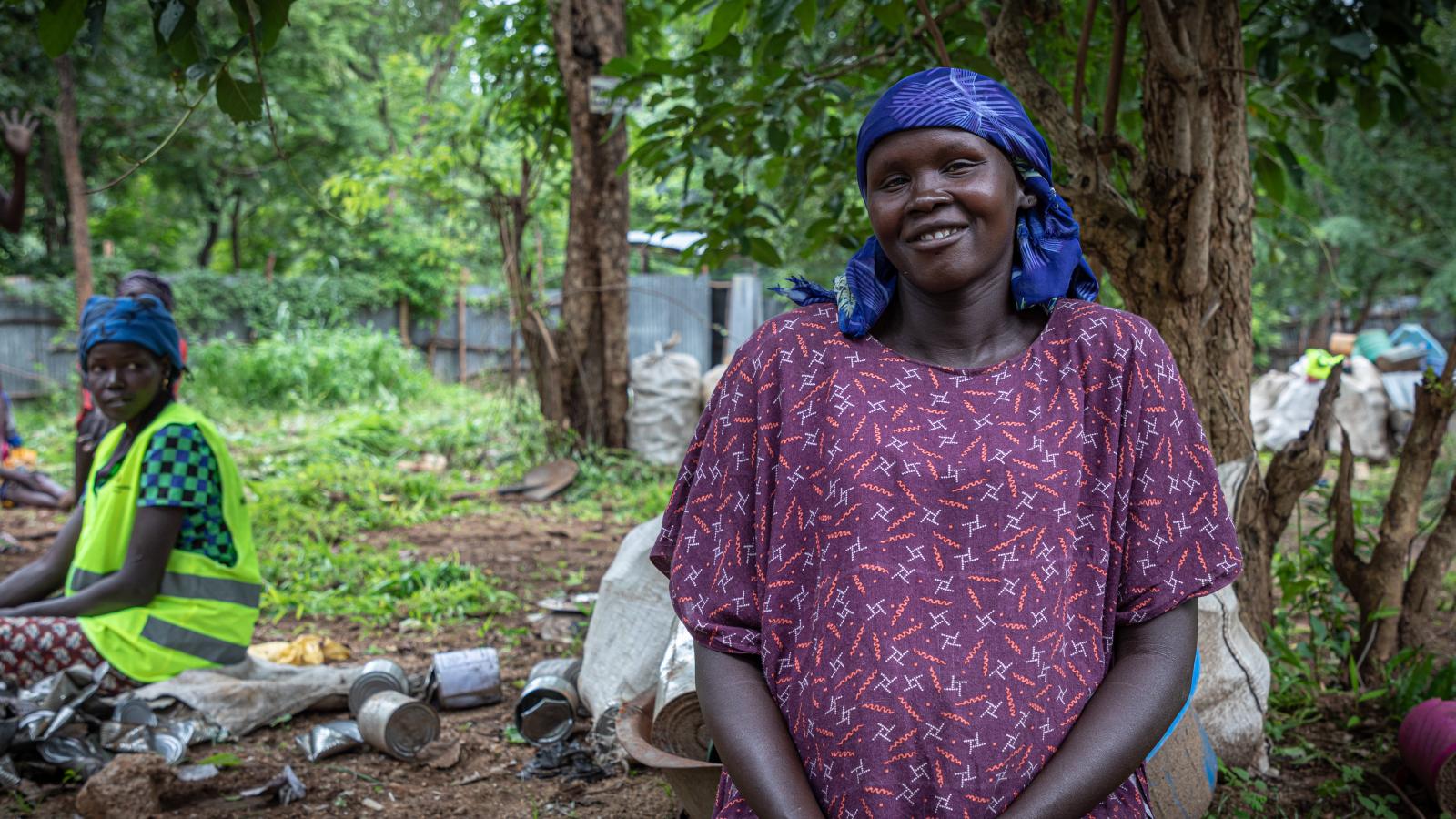

Trottier Family Foundation supports clean energy in Ethiopia
In a stride towards sustainable living and addressing climate change, the Trottier Family Foundation, in collaboration with UNHCR, is championing change for refugees in Ethiopia. The Foundation’s steadfast support provides energy-efficient stoves and communal kitchens, uplifting the living conditions of refugee communities. With more than 3,000 beneficiaries so far, this initiative enhances lives, reduces emissions, combats deforestation, and opens doors to cleaner, greener energy alternatives.
For the latest operational and funding updates on the East and the Horn of Africa region check this page.
